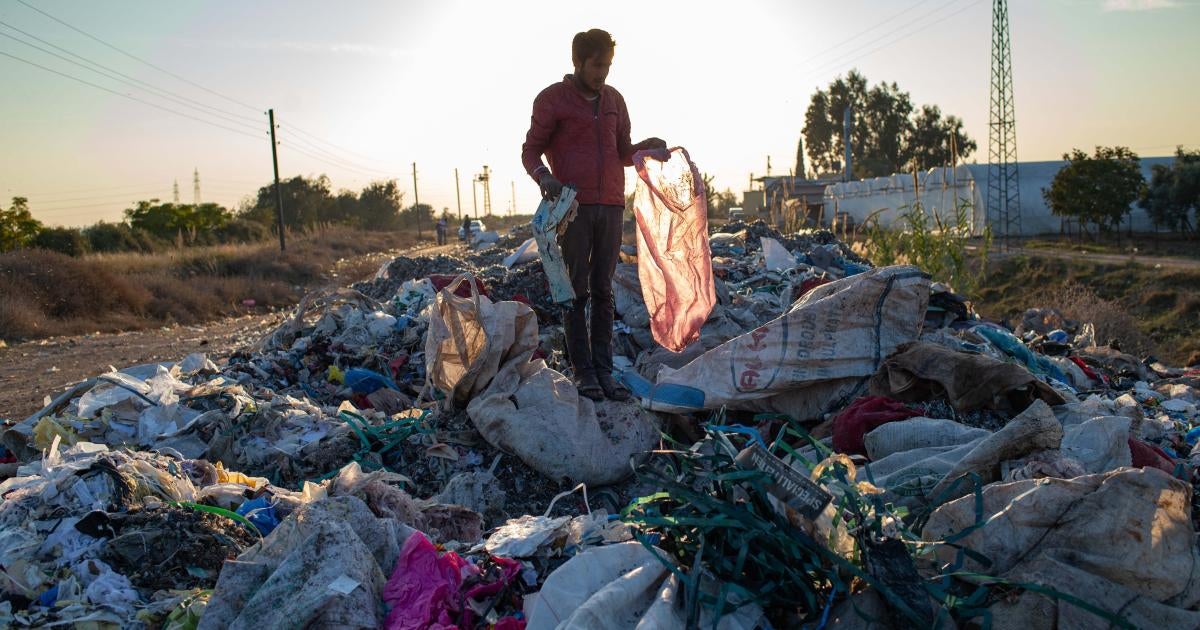EU Takes Step Towards Banning Plastic Waste Exports
A Committee of the European Parliament voted today to ban plastic waste exports outside of the European Union: good news for communities around the world impacted by exports of European refuse.

Instead of processing and reducing their own waste, EU member states ship more than 1,000 metric tons of plastic waste each year to other countries for recycling. Nearly half of that plastic waste is sent to Turkey, where Human Rights Watch research found that plastic recycling facilities threaten the health of workers and nearby communities. To be recycled, plastic waste is shredded, washed, melted at high temperatures, and then turned into pellets. This process emits air pollutants and toxins. Workers and local residents in Turkey told us they experience acute respiratory problems, difficulties accessing medical care, and fear retaliation from facility owners if they complain to authorities.
The Turkish government fails to enforce laws and regulations that require strict licensing and regular, thorough inspections of recycling facilities and occupational health. “When I inhaled ... it would feel like my lungs were squeezed and under pressure ... I stopped working there two months ago, but I still have a problem with breathing,” a 20-year-old waste picker in Adana, Turkey, who had worked at a plastic recycling center as a child said. While it is difficult to know if the facility was processing European waste, Greenpeace found illegally dumped and burned German plastic waste in a nearby area in Adana in 2021. By voting for a ban on plastic waste exports outside the EU – part of its proposal to revise the EU Waste Shipment Regulation – the Environment Committee of the European Parliament sends a clear message: EU countries should take responsibility for their own waste instead of sending it to countries with weak environmental regulations and little government oversight for environmental, health, and labor rights violations. But for the proposed ban to become a reality, it is essential the European Parliament and EU member states, through the European Council, follow through and embrace the amendments adopted by the Committee. Ultimately, this will mean a commitment to reducing the production and consumption of plastic in the EU: a step that’s long overdue to protect people’s health and the environment.
Read the full article at the original website
References:
- https://www.europarl.europa.eu/news/en/press-room/20221128IPR58112/waste-shipments-stricter-rules-to-protect-the-environment-and-human-health
- https://www.hrw.org/news/2022/10/19/eu-should-stop-exporting-its-plastic-waste
- https://www.hrw.org/news/2022/09/21/turkey-plastic-recycling-harms-health-environment
- https://www.hrw.org/report/2022/09/21/its-if-theyre-poisoning-us/health-impacts-plastic-recycling-turkey#_ftn186
- https://ipen.org/sites/default/files/documents/ipen-plastic-waste-management-hazards-en.pdf
- https://www.clinmedjournals.org/articles/ijtra/international-journal-of-toxicology-and-risk-assessment-ijtra-5-021.php?jid=ijtra
- https://www.greenpeace.org/international/press-release/47759/investigation-finds-plastic-from-the-uk-and-germany-illegally-dumped-in-turkey/
